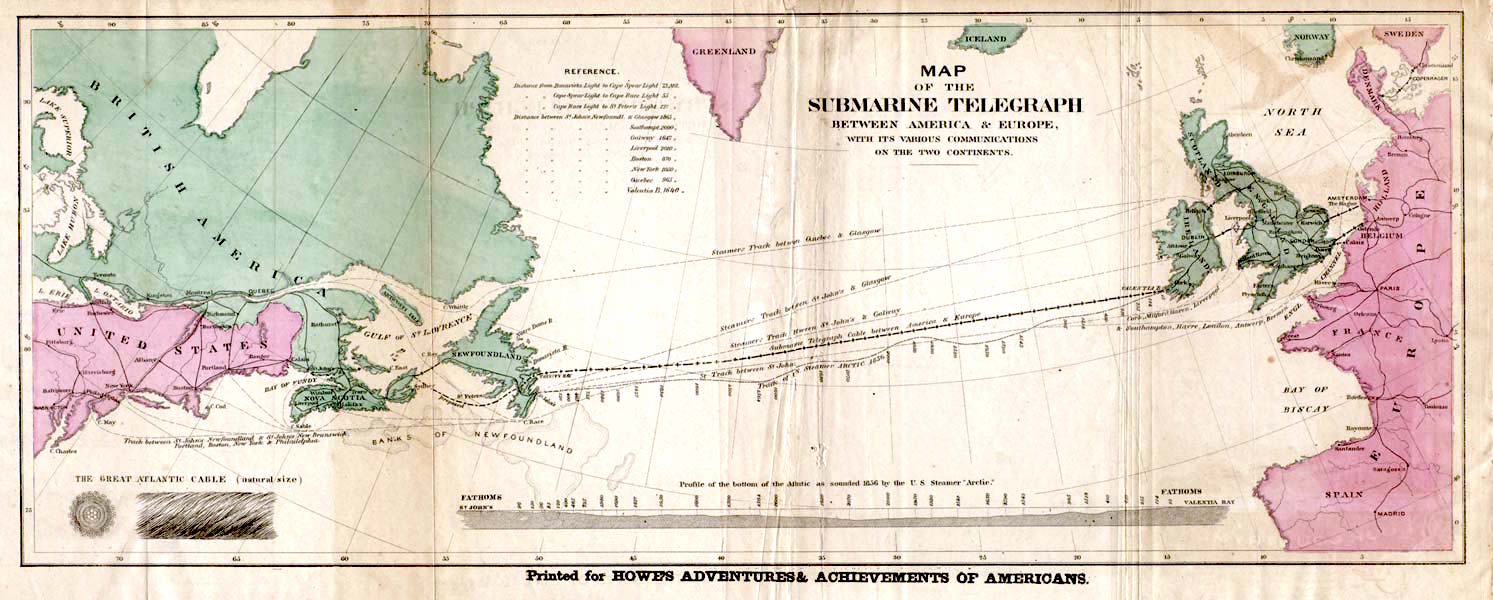As I mentioned before, in the 6th century, a group of monks began construction of an isolated island monastery to emulate the 3rd century ascetic desert monks of Egypt. To them, they were pushing the boundaries of earthly existence by going to the edge of the known world, and leaving it behind to transform and develop faith. This colony of 10-15 monks lived on Skellig Michael for 600 years, nearly severed from outside communication, enjoying the company merely of migrating puffins and crashing waves. I imagine a young monk arriving at this remote destination, full of hope--and probably a little dread--taking a deep breath and then going to work.
Fast forward another 600 years to the 1850s, and although the land masses were the same, civilization had vastly changed. A group of investors made plans to lay a transatlantic cable, seeking to speed up communication from ten days to minutes. Their choice for the European terminus? Valentia Island, a mere eight miles from Skellig Michael. After two disastrous attempts, they succeeded in 1858.
These two groups chose virtually the same site for the same reasons, but in order to fulfill two opposite objectives. In both cases, these islands were the relative edge of the world. But whereas the monks used them to escape civilization, later the cable investors' efforts would make the world substantially smaller. The same space had gone through a paradigm shift, positioning it to be used for very different purposes.
I think about the destinations that we each have in our lives, and how we sometimes forget that life is not static; it is dynamic. Although we strive to reach certain goals, life continues and situations develop around us in time. We are the product of our response to continual change.
The juxtaposition of the monks and cable investors in Western Ireland helps me look at milestones and goals a little differently: that either through my own efforts or external changes, what was once a destination will inevitably become a stepping stone.
The juxtaposition of the monks and cable investors in Western Ireland helps me look at milestones and goals a little differently: that either through my own efforts or external changes, what was once a destination will inevitably become a stepping stone.
.jpg)

No comments:
Post a Comment